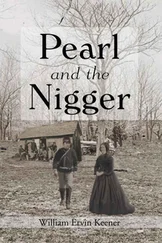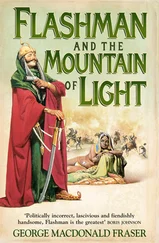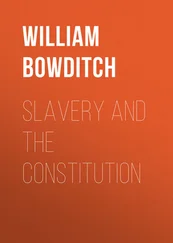William Sharp - Pharais; and, The Mountain Lovers
Здесь есть возможность читать онлайн «William Sharp - Pharais; and, The Mountain Lovers» — ознакомительный отрывок электронной книги совершенно бесплатно, а после прочтения отрывка купить полную версию. В некоторых случаях можно слушать аудио, скачать через торрент в формате fb2 и присутствует краткое содержание. Жанр: foreign_antique, foreign_prose, на английском языке. Описание произведения, (предисловие) а так же отзывы посетителей доступны на портале библиотеки ЛибКат.
- Название:Pharais; and, The Mountain Lovers
- Автор:
- Жанр:
- Год:неизвестен
- ISBN:нет данных
- Рейтинг книги:5 / 5. Голосов: 1
-
Избранное:Добавить в избранное
- Отзывы:
-
Ваша оценка:
- 100
- 1
- 2
- 3
- 4
- 5
Pharais; and, The Mountain Lovers: краткое содержание, описание и аннотация
Предлагаем к чтению аннотацию, описание, краткое содержание или предисловие (зависит от того, что написал сам автор книги «Pharais; and, The Mountain Lovers»). Если вы не нашли необходимую информацию о книге — напишите в комментариях, мы постараемся отыскать её.
Pharais; and, The Mountain Lovers — читать онлайн ознакомительный отрывок
Ниже представлен текст книги, разбитый по страницам. Система сохранения места последней прочитанной страницы, позволяет с удобством читать онлайн бесплатно книгу «Pharais; and, The Mountain Lovers», без необходимости каждый раз заново искать на чём Вы остановились. Поставьте закладку, и сможете в любой момент перейти на страницу, на которой закончили чтение.
Интервал:
Закладка:
William Sharp
Pharais; and, The Mountain Lovers
FOREWORD
INTO this collected edition are gathered all the writings of William Sharp published under his pseudonym "Fiona Macleod," which he cared to have preserved; writings characterised by the distinctive idiom he recognised to be the expression of one side of his very dual nature – of the spiritual, intuitive, subjective self as distinct from the mental, reasoning, objective self.
In the preparation of this edition I have carefully followed the author's written and spoken instructions as to selection, deletion, and arrangement. To the preliminary arrangement he gave much thought, especially to the revision of the text, and he made considerable changes in the later version of certain of the poems and tales. In one instance only have I acted on my own judgment, and have done so because I felt satisfied he would have offered no objection to my suggestion. In accordance with his decision the romance Green Fire is not reissued in its entirety, because he considered the construction of it to be seriously defective. He rewrote the second half of the story – the only portion he cared to keep – renamed it "The Herdsman" and included it in The Dominion of Dreams . Scattered throughout Green Fire there are a number of "Thoughts" which I and other readers are desirous of preserving; I have therefore gathered them together and have included them in the form of detached "Fragments."
The Laughter of Peterkin is also excluded, because it is a retelling of old familiar Celtic tales and not primarily an original work. Two of these retellings, however, Deirdre and the Sons of Usna , and The Four White Swans have been published separately in America by Mr. Mosher (Portland, Maine).
Though the "Fiona Macleod" phase belongs to the last twelve years of William Sharp's life, the formative influences which prepared the way for it went back to childhood. Though "the pains and penalties of impecuniosity" during his early struggles in London tended temporarily to silence the intuitive subjective side of his nature in the necessary development of the more objective intellectual "William Sharp" – critic, biographer, essay and novel writer as well as poet – he never lost sight of his desire to give expression to his other self.
William Sharp was born in 1855 of Scottish parents (he died at Maniace, Sicily, in 1905), was educated at the Academy and University of Glasgow, and spent much of his youth among the Gaelic-speaking fisher-folk and shepherds of the West Highlands. After a voyage to Australia for his health, he settled in London in 1878 and strove to make for himself a place in the profession of Literature. His friendships with Rossetti, Browning, Pater, Meredith were important factors in his development; and later he came into valued personal touch with W. D. Howells, Richard Stoddart, Edward Clarence Stedman, and other English and American men of letters.
In 1886, not long after his marriage, he suffered a serious illness and a protracted convalescence. During the enforced leisure he dreamed many dreams, saw visions, and remembered many things out of the past both personal and racial. He determined, should he recover, to bend every effort to ensure the necessary leisure wherein to write that which lay nearest his heart. Accordingly in 1889 he left London for a time. The first outcome of a wonderful winter and spring in Rome was a volume of verse, in unrhymed metre, Sospiri di Roma , privately published in 1891, and followed in 1893 by a volume of dramatic interludes, Vistas ; and, though both are a blending of the two elements of the poet's dual nature, they to some extent foreshadowed the special phase of work that followed. He was feeling his way, but did not find what he sought until he wrote Pharais , the first of the series of books which he issued under the pseudonym of "Fiona Macleod."
In the sunshine and quiet of a little cottage in Sussex; in the delight in "the green life" about him; impelled by the stimulus of a fine friendship, he had gone back to the influences of his early memories, and he began to give expression to his vision of the Beauty of the World, of the meaning of Life, of its joys and sorrows. The ultimate characteristic expression of his "dream self" was due to the inspiration and incentive of the friend to whom he dedicated Pharais . It was, as he states in a letter to me written in 1896, "to her I owe my development as 'Fiona Macleod,' though in a sense, of course, that began long before I knew her, and indeed while I was a child"; and again, "without her there would never have been any 'Fiona Macleod.'"
The volumes appeared in quick succession. Pharais in 1894; The Mountain Lovers in 1895; The Sin-Eater in 1895; The Washer of the Ford in 1896; Green Fire in 1896; The Laughter of Peterkin in 1897; The Dominion of Dreams in 1899; and a volume of poems, From the Hills of Dream , in 1896. A second serious illness intervened, and in 1900 he published The Divine Adventure , and in 1904 The Winged Destiny . Of his two dramas, written in 1898-9, The House of Usna was performed by the Stage Society in London in 1900, and was issued in book form in America by Mr. Mosher in 1903; The Immortal Hour was published in America in 1907 and in England in 1908. The volume of nature essays, Where the Forest Murmurs , and an enlarged edition of From the Hills of Dream were also published posthumously.
For twelve years the name of "Fiona Macleod" was one of the mysteries of contemporary literature. The question of "her" identity provoked discussion on both sides of the Atlantic; conjecture at times touched the truth and threatened disclosure. But the secret was loyally guarded by the small circle of friends in whom he had confided. "'Fiona' dies" he was wont to say, "should the secret be found out." These friends sympathised with and respected the author's desire to create for himself, by means of a pseudonym, the necessary seclusion wherein to weave his dreams and visions into outward form; to write a series of Celtic poems, romances and essays different in character from the literary and critical work with which William Sharp had always approached his public.
In a letter to an American friend written in 1893, before he had decided on the use of the pseudonym, he relates: "I am writing a strange Celtic tale called Pharais , wherein the weird charm and terror of the night of tragic significance is brought home to the reader (or I hope so) by a stretch of dew-sweet moonflowers glimmering white through the mirk of a dust laden with sea-mist. Though the actual scene was written a year ago and one or other of the first parts of Pharais , I am going to rewrite it." In 1895 he wrote to the same friend who had received a copy of the book, and who, remembering the statement, was puzzled by the name of the author: "Yes, Pharais is mine. It is a book out of the core of my heart… Ignored in some quarters, abused in others, and unheeded by the general reader, it has yet had a reception that has made me deeply glad. It is the beginning of my true work. Only one or two know that I am 'Fiona Macleod.'" To the last the secret was carefully guarded for him, until he passed "from the dream of Beauty to Beauty."
In the author's "Foreword" to the Tauchnitz selection of the Fiona Macleod Tales, entitled Wind and Wave , he has set down in explanation what here may be fittingly reprinted. He explains that in certain sections are tales of the old Gaelic and Celtic-Scandinavian life and mythology; that in others there is a blending of Paganism and Christianity; in others again "are tales of the dreaming imagination having their base in old mythology or in a kindred mythopœic source… They divide broadly into tales of the world that was and tales of the world that is, because the colour and background of the one series are of a day that is past, and past not only for us, but for the forgetting race itself; while the colour and background of the other, if interchangeable, is not of a past, but only of a passing world which lies in essential truth in nature, material or spiritual, the truth of actual reality, and the truth of imaginative reality…
Читать дальшеИнтервал:
Закладка:
Похожие книги на «Pharais; and, The Mountain Lovers»
Представляем Вашему вниманию похожие книги на «Pharais; and, The Mountain Lovers» списком для выбора. Мы отобрали схожую по названию и смыслу литературу в надежде предоставить читателям больше вариантов отыскать новые, интересные, ещё непрочитанные произведения.
Обсуждение, отзывы о книге «Pharais; and, The Mountain Lovers» и просто собственные мнения читателей. Оставьте ваши комментарии, напишите, что Вы думаете о произведении, его смысле или главных героях. Укажите что конкретно понравилось, а что нет, и почему Вы так считаете.












